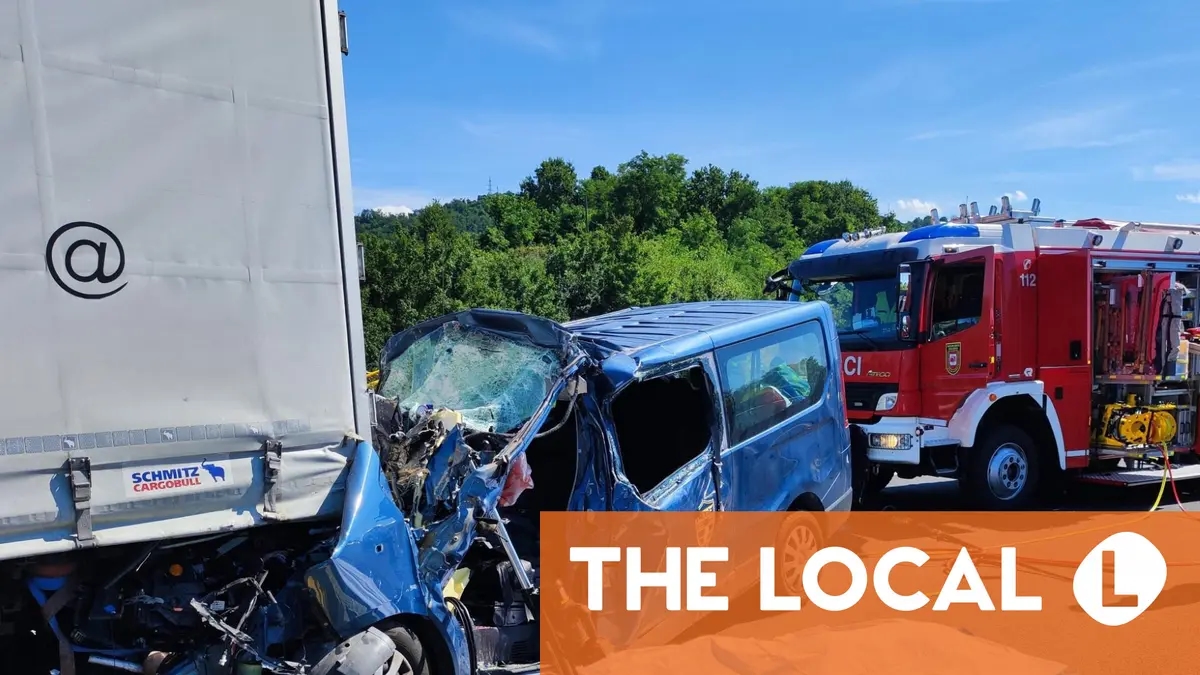'This will save lives': EU adopts new rules on Europe-wide driving bans

It will be more difficult for drivers in Europe who committed serious traffic offences in another EU country to dodge a driving ban, as new rules adopted on Tuesday aim to ensure that disqualifications are recognised across the 27 member states.
The European Parliament on Tuesday gave the final green light to new rules on the issuance of driving licenses and on the recognition of driving disqualifications across the EU.
Driving bans
Under current rules, a driving licence can only be withdrawn if the infraction has been committed in the member state that issued it. Lack of EU-wide enforcement also mean that about 40 per cent of offences committed in other EU countries remain unpunished.
With the new measures, a driving licence withdrawal, suspension or restriction will be passed on to the EU country which issued the license, to ensure the enforcement of the penalty.
National authorities will have to inform each other about driving ban decisions for the most severe traffic offences, such as drink or drug driving, causing fatal crashes, or excessive speed (driving 50 km/h faster than the limit).
When the member state where the offence took place imposes a driving disqualification of at least three months and the driver has exhausted all appeals, authorities will have to notify the country that issued the licence to enforce its suspension or restriction.
Italian MEP Matteo Ricci, in charge of the file, said: "By introducing clearer and more timely criteria for suspending driving privileges in cases of serious violations, it helps protect not only responsible drivers but the entire community. A stronger, more effective system of monitoring and enforcement will help prevent accidents and save lives.”
When will the new rules be in force?
The application of new rules won’t be quick, however. After publication in the Official Journal in the coming weeks, EU countries will have three years to pass these measures into national law and one more year to prepare for their implementation.
Improving safety
The rules are part of a package to improve road safety, as road accidents in the EU cost last year almost 20,000 lives. This compares to some 51,000 deaths on the roads back in 2001, but the EU has its sights set on zero fatalities by 2050.
According to the latest data by the European Commission, the Sweden and Denmark are the safest countries for driving (20 and 24 deaths per million inhabitants each year), while Romania and Bulgaria (78 and 74 deaths per million inhabitants each year) have the highest fatality rates.
Digital driving license
The parliament also passed new rules requiring that EU countries make driving licenses available digitally, to be accessible on mobile phones, by 2030, although people will still be able to ask for physical versions.
German MEP Jutta Paulus, who led on this file, said: “The idea is that by then, the EU's digital wallet will be available, so that you could put your digital driving licence into that safe space on your smartphone. But you can always request a physical one.”
This could be for travelling outside the EU or “just because you want it, because maybe I want to go to a friend’s that evening, and I don't want to take my smartphone with because I want to be offline, I have to have a possibility to have my driving licence with me," she said.
Probation periods and validity
Under new rules, driving licenses for motorcycles and cars should be valid for 15 years, with the possibility for member states to reduce to 10 years if a driving licence is used as a national ID.
For the first time, there will also be a probationary period of two years for new drivers, during which stricter rules and sanctions will apply for driving under the influence of alcohol or not using safety belts.
Driving tests have also been updated to include knowledge on driver-assistance systems, the risk of distraction when using the phone, and more awareness about pedestrians, children, cyclists and other vulnerable people.
With reporting by AFP
Please sign up or log in to continue reading
thelocal




